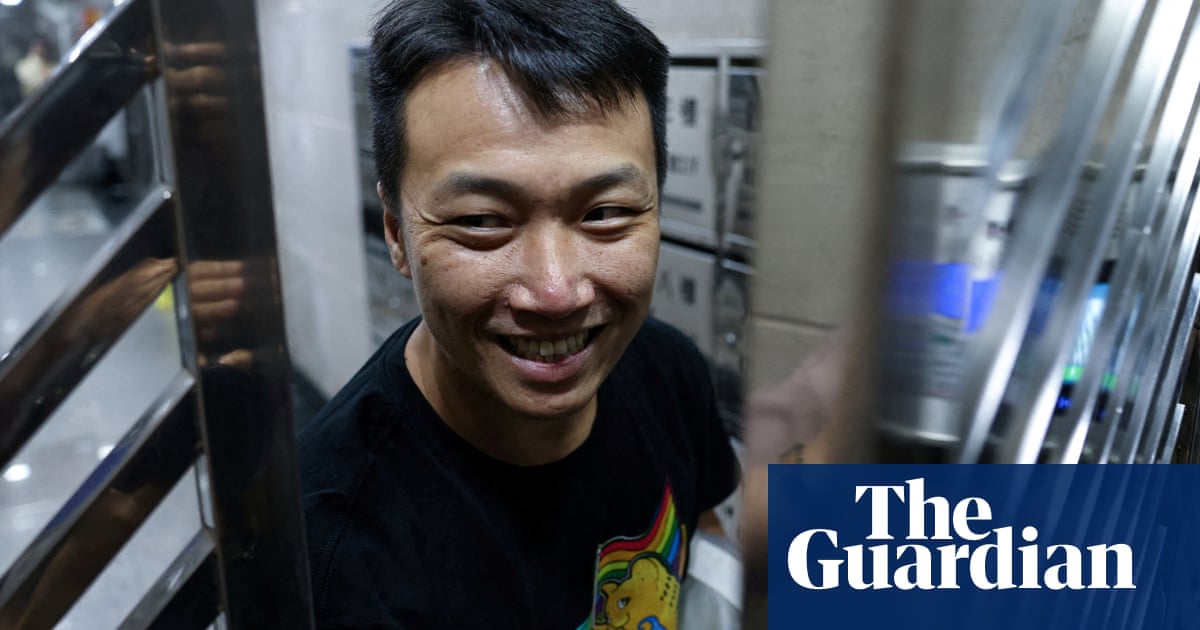Four people jailed in the landmark national security trial of the “Hong Kong47”, the pro-democracy figures accused of conspiracy to commit subversion, were freed on Friday after more than four years behind bars, the second group to be released in a month.
Among those freed was longtime political and LGBTQ activist Jimmy Sham, who also led one of Hong Kong’s largest pro-democracy groups, the Civil Human Rights Front, which disbanded in 2021.
CHRF was one of the largest pro-democracy groups in the former British colony and helped to organise million-strong marches during pro-democracy protests in 2019.
The others who were released were Kinda Li, Roy Tam and Henry Wong. Local media reported some of the four arriving at their homes early on Friday. Sham told reporters he would see them “in the afternoon”.
“I want to reserve some time for my family,” he said in Cantonese, according to Hong Kong Free Press.
Li reportedly thanked gathered reporters “for the hard work” before moving inside.
The four are the second group of the Hong Kong 47 to be released. At the end of April, former pro-democracy lawmakers Claudia Mo, Kwok Ka-ki, Jeremy Tam and Gary Fan werereleased from three separate prisonsacross Hong Kong around dawn.
The 47 pro-democracy campaigners were arrested and charged in early 2021 with conspiracy to commit subversion under a Beijing-imposed national law which carried sentences of up to life in prison.
Forty-five of these were convicted after a marathon trial, with sentences of up to 10 years. Only two were acquitted.
The democrats were found guilty of organising an unofficial “primary election” in 2020 to select candidates for a legislative election. Prosecutors accused the activists of plotting to paralyse the government by winning a majority of seats and blocking government bills to force a dissolution. . The election was postponed, and rescheduled after an electoral overhaul that ensured only pro-Beijing “patriots” could run.
Human rights groups and some western governments including the US called the trial politically motivated and had demanded the democrats be freed.
Hong Kong and Beijing, however, say all are equal under the national security laws and the democrats received a fair trial.
Since large and sustained pro-democracy protests erupted in Hong Kong for most of 2019, China has cracked down on the democratic opposition as well as liberal civil society and media outlets undersweeping national security lawsthat have broadly criminalised dissenting behaviours, including benign acts of protest.
